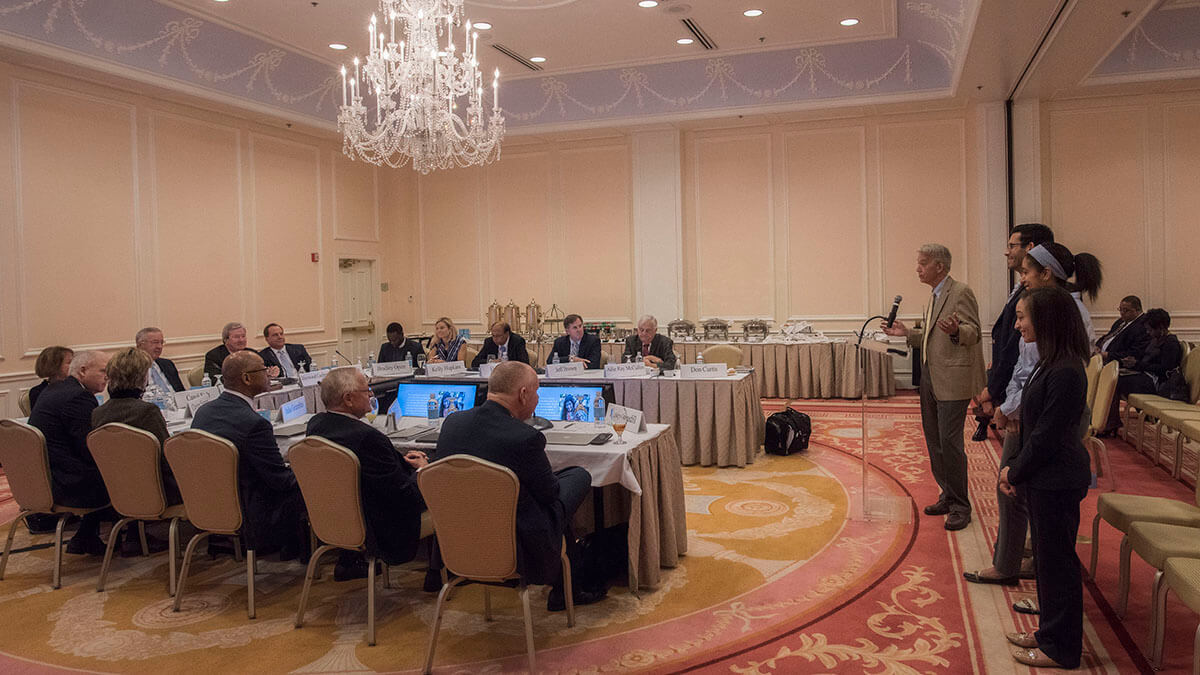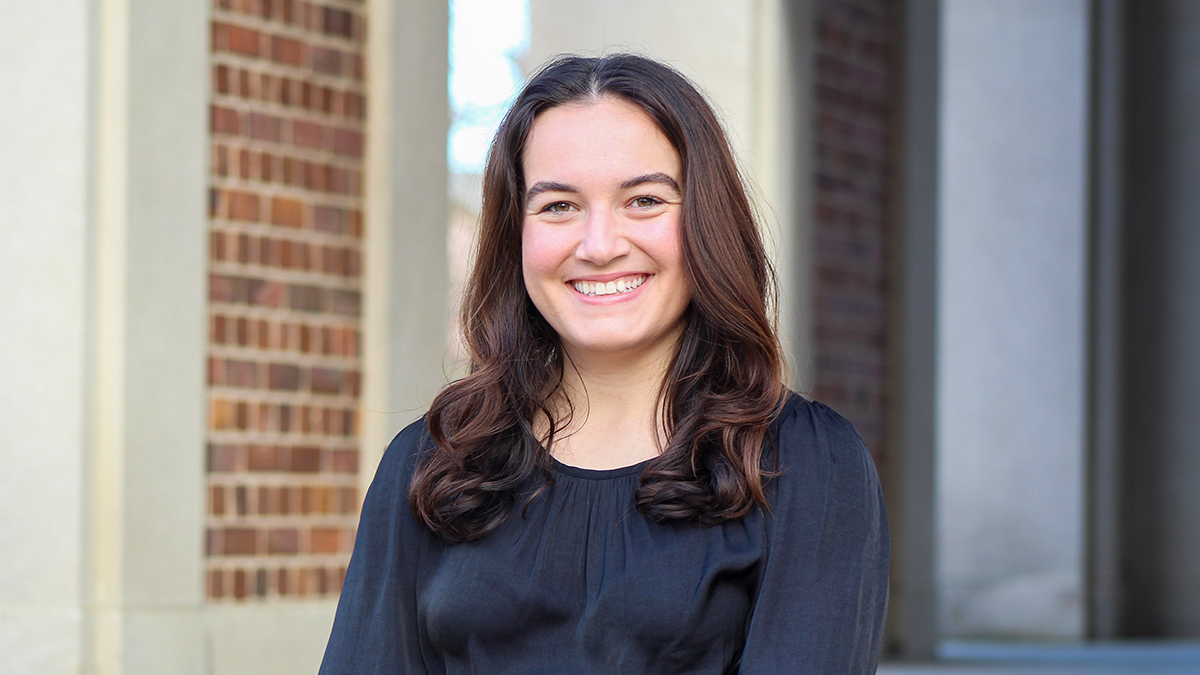January BOT: Folt sets bold vision for Carolina’s future
Speaking to the Carolina Board of Trustees, Chancellor Carol L. Folt presented a strategic framework for the future, called "The Blueprint for Next."

Chancellor Carol L. Folt presented to University trustees on Wednesday, Jan. 25, a new strategic framework that will allow Carolina to adapt to the many changes in higher education while staying true to its core values as the nation’s first public university.
The framework, called “The Blueprint for Next,” was designed to be flexible – so that it can be adapted to meet changing circumstances – and yet focused – so that the University can set real priorities and make decisive choices about where it will invest, she said.
The framework was constructed from two broad, foundational pillars.
The first, “Of the Public, for the Public,” harkens to Carolina’s historic role in service to the state and its people; the second, “Innovation Made Fundamental,” identifies areas where Carolina must continue to expand and adapt to meet the changing needs of students and society in the decades to come.
“We spent a lot of time trying to identify the areas of real distinction for our institution, but also the areas of real need,” Folt said. “This isn’t about next year. This is about paving the way for many years ahead.”
Folt said the framework is the direct result of two years of hard work and some very creative thinking that captured the input from literally thousands of people.
“I have had the privilege to talk to so many of you and witness the extraordinary generosity of spirit that people feel toward this place,” Folt said. “There is an immense goodwill that builds from people’s true belief in the grand mission of this University.
“There is a desire on everyone’s part, not to live in the status quo, but to do what it takes to achieve a future that is worthy of all the effort and the dreams and the hopes of all the people who have come before.”
Folt said part of that spirit was expressed by the desire people had to think beyond their own schools and units and join others across campus to champion broad-reaching initiatives. “That is an extraordinary advantage,” Folt said. “People like to work together here.”
That spirit of collaboration is present in many of the crosscutting imperatives and priority initiatives included in the strategic framework, but none more so that the initiative Folt called “The Great Convergence.”
“We are operating at a time when path-breaking work at the academy is going to be done at the intersections between disciplines,” Folt said. “At those intersections, they will start to melt and converge into new disciplines and we want to be a leader in that convergent thinking.”
Folt said Carolina is already well along that path in specific areas, including applied physical sciences, computational sciences and biomedical engineering. At the same time, Vice Chancellor for Research Terry Magnuson has already developed a combined organizational and funding strategy called “creativity hubs” to do even more.
“We are setting out to create the conditions to make it possible — in fact, normal — at Carolina to bring researchers with divergent expertise together, without physical relocation or other disruptions, for time-limited, problem-focused projects.”
Folt said the emerging South is one of the fastest-growing regions in the country, which makes Carolina’s leadership role even more imperative.
“This area is a rising and changing power and we want our university to be the leading university – not only now but 25 years from now,” Folt said.
Folt also spoke passionately about new learning imperatives that will extend Carolina’s reach throughout the state to non-traditional students who need opportunities to develop the skills for a changing economy.
That process of outreach, she added, “begins with our own people” working at Carolina.
“Think about it. If we are not making those opportunities available to our own workforce, we are certainly not walking the walk, we are just saying it.”
Folt concluded by acknowledging her optimism about the future.
“I am so bullish on Carolina and I am bullish on higher ed in America, too, and that’s not because I don’t see the fearful things that are happening,” Folt said. “We all do. But higher ed is the longest and most inspiring and most important industry in all of America that leads from dream to opportunity. I don’t think people disagree with that in any fundamental way.
“We have 200-plus years where we have been doing that. We can’t be fearful about changes that need to be made to make it even more relevant. We can be so proud and so aware, almost humbled, by the amazing commitment that has brought us here.”




